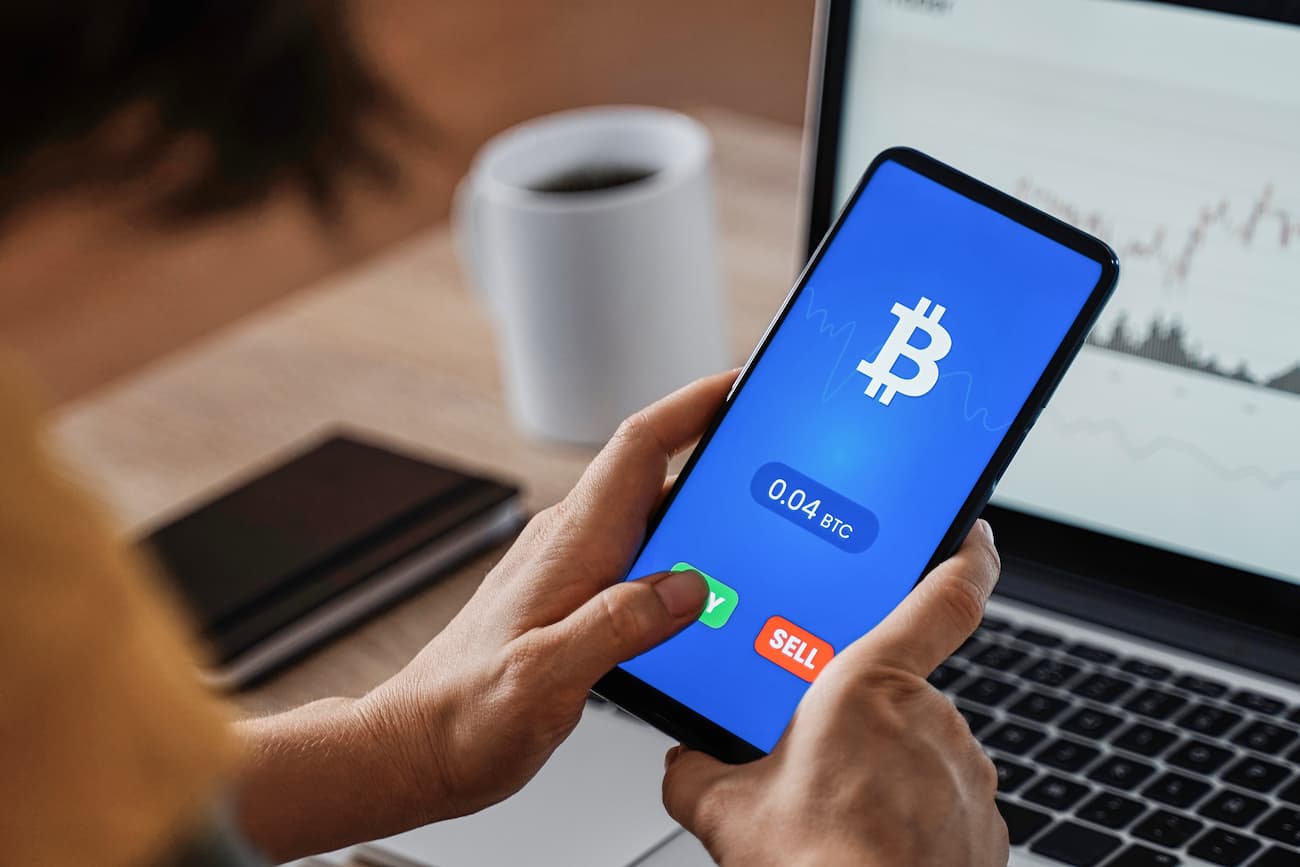In the past few years cryptocurrency has blasted to the forefront of everyone’s attention with many embracing crypto while others remain skeptical.
Despite the divide of opinions surrounding cryptocurrencies like Bitcoin, Ethereum, and LiteCoin, the underlying technology, Blockchain, has been heralded as the next technology that is going to transform the world.
One of the newest sectors utilizing blockchain technology is called DeFi.
DeFi is taking the world by storm, but many people are still unclear on what DeFi is and the implications of this new decentralized tech.
Today we are breaking it down so read on to learn more about DeFi.
What is DeFi?
DeFi stands for decentralized finance. This umbrella term refers to various financial services that run on a public blockchain, like Ethereum, instead of the private network of traditional centralized finance organizations.
DeFi allows you to do all of the things that would typically require a financial institution, like earning interest, borrowing and lending money, purchasing insurance, trading derivatives and assets and other traditional financial system services.
As with other blockchain based systems, DeFi technology is a peer-to-peer, global financial product, that doesn’t rely on any centralized figure to operate as the middle man.
This means that these new DeFi solutions remove the barrier to entry and finally make finance open and accessible for everyone.
Because of this, DeFi is taking the world by storm. To consider its implications, start by asking this question:
Why Is DeFi Important?
There are a number of reasons why DeFi is taking the world by storm.
By moving to a tokenized system, DeFi enables a new level of efficiency and ease of use for anyone participating in a financial transaction.
DeFi platforms cut out the middle man and connect users directly to one another. By doing so, DeFi offers a number of benefits.
That’s the good news.
The bad part is that this same direct connection lowers barriers to entry, which can lead to greater risk.
In short, by eliminating the middleman from the financial equation, DeFi offers a number of benefits to end users, but also presents a number of challenges.
What Are The Benefits of DeFi?
The benefits of DeFi are not in question.
By offering a direct way to send and receive assets in a security-rich, trustless model, DeFi completely changes the game in the financial sector.
DeFi is hailed as the next financial revolution in the blockchain space.
A few of the advantages it offers to its users are listed below:
1. Scalability
This is one of the big reasons why DeFi is taking off. As it’s fast growing in popularity, the number of transactions is increasing too.
The amount of data that needs to be stored for these transactions is growing at an alarming rate.
Many financial institutions are still using old systems that are not optimized to handle this amount of information.
On the other hand, blockchain technology is growing in popularity worldwide.
DeFi applications are built on top of blockchain technology. This means that they have a lot higher transaction speeds and lower costs.
They also have a number of applications that were unheard of in the financial sector before DeFi came along.
2. Security
A lot of people feel uncomfortable using financial institutions.
They claim that the lack of trust makes them uneasy and that there’s a lack of transparency in the financial system.
DeFi completely changes the game. It offers more security than traditional financial institutions.
It’s completely decentralized and allows the users to control their own assets.
3. Flexibility
DeFi makes it easier to send and receive assets. You just need to follow a few steps and you can send or receive money, stocks, contracts, art, and many other assets directly without having to go through a centralized system.
There’s no need to use banks or brokers anymore. With DeFi you can just use the decentralized financial applications and connect directly with who ever you’re working with.
4. Reduced Fees
By using DeFi, financial institutions and individuals can save a lot of money.
They don’t have to maintain costly infrastructure since DeFi is a decentralized system.
On top of that, they don’t have to pay any interbank fees which means they can save a lot of money.
In fact, they can save up to 70% of money by using DeFi.
5. Fast Transactions
DeFi makes it easy to send or receive money or other assets within minutes. There’s no need to wait for several days for a transfer to go through.
All you need is an Internet connection and you can perform transactions without any additional hassles or delays.
6. Trustless
DeFi is completely trustless. You don’t have to rely on middle men or centralized systems to handle your transactions.
By removing the additional third-party from the equation, you lower the chances of human error or falling victim to a malicious insider.
The decentralized blockchain handles your transaction allowing you to directly connect with others who are using DeFi in a secure fashion.
7. Accessibility
The DeFi ecosystem is completely open for everyone.
You don’t have to worry about any barriers or limits. This is one of the most exciting aspects of this technology.
DeFi opens the door to bring financial services like banking, loans and insurance to the world’s underserved population.
These types of services are taken for granted in first world countries, but did you know that 31% of the global adult population has no bank account and that the majority of the adult population has no access to financing or loans?
These statistics are shocking.
While traditional finance, institutional investors and traditional bank systems greatly ignore the needs of the global population, DeFi products and a decentralized lending protocol could help meet these needs and drastically change the financial landscape.
What are the Downsides of DeFi?
DeFi does have its drawbacks.
The following are the negatives that come with DeFi:
1. Scams
One of the biggest potential problems with the decentralized finance landscape is the inherent risk of scams.
Since there are so few regulations and laws with wording that address DeFi, bad actors are able to more easily take advantage of people.
The DeFi world is a little bit like the wild west.
It’s so new and there are many unexplored lands that the potential for fraud is high, however, the opportunities that this newness brings has created enormous opportunities for wealth generation.
Regulations are designed to protect people, however, let’s face it they have the side effect of stifling innovation.
While the lack of regulations is a drawback of DeFi, it is also one of the factors that allows this technology to expand and grow at such an incredible rate.
So caution is in order, but don’t throw the baby out with the bathwater.
Here are a few things you can do to help protect yourself:
-Research And Read Reviews
It’s critically important to research out any organization or platform before working with them.
Search online for the name and read reviews.
Regardless of how enticing they may seem, if there are no reviews or there are multiple negative reviews, you should steer clear!
-Avoid The Hype
Bitcoin, blockchain, crypto, DeFi, NFTs, ICOs, etc are extremely exciting, but it’s important to keep your wits about you.
My dad used to say, “If all your friends jumped off a bridge, would you?”
And my response to him was always, “It depends.”
- How high is the bridge?
- How fast is the water moving below?
- Are there dangers in the water?
There’s no one size fits all answer in this space.
There are going to be opportunities that arise that could be extremely successful, but despite what anyone says, they’re never a guarantee.
So as long as you keep clear thinking when approaching any DeFi or crypto project you should be fine.
-Protect Your Wallet Keys
All DeFi transactions require the use of a crypto wallet.
This wallet is the system that hold your tokens and allows you to interact with other DeFi apps and system.
It’s critically important to never share your wallet’s private keys with anyone else.
We recommend printing a copy of your private keys and keeping them within a physical safe as well as never keeping your wallet’s keys on any type of cloud storage.
There are so many sad stories of people getting locked out of their wallets due to losing their keys or their keys getting stolen.
In the decentralized world, you’re not relying on a third party to protect you, you have to protect yourself. So be vigilant!
2. Technical Difficulties
While DeFi is based on blockchain technology, it’s vulnerable to the same issues that most blockchain parties face, like slow transaction times during heavy load and scaling issues.
To help alleviate some of these concerns, DeFi can be combined with off-chain services.
3. Market Volatility
The most volatile aspect of most DeFi cryptocurrencies is the digital currency itself.
Every DeFi application is dependent on the underlying cryptocurrency.
So if the underlying value of the cryptocurrency fluctuates widely, then the price of the DeFi protocol will be put in jeopardy.
4. Long-term Impact
As with most DeFi applications, the long-term impact is hard to predict.
While many DeFi apps do offer significant advantages over traditional services, this alone doesn’t guarantee they’re going to succeed in the long run.
Some of the applications have great ideas, but they are either too new or are poorly executed.
What Are The Most Popular DeFi Applications?
Now that we’ve reviewed some of the positive and negative aspects of DeFi let’s take a look at some of the most popular DeFi applications.
1. Decentralized Exchanges
Decentralized exchanges (DEX) are becoming increasingly popular.
They offer a number of benefits that a centralized crypto exchange does not, like greater security and privacy for traders and users.
The biggest benefit of a decentralized exchange is the fact that they are completely decentralized.
This means that they don’t hold any of your assets and that you own and control your own assets and funds and no one else does.
2. Crypto Tokens
Crypto tokens are used in a lot of the DeFi applications (DeFi dApp) that exist.
They allow for other applications to run on top of them and offer a way for people to track ownership.
Some applications utilize a type of DeFi token called governance tokens which provide voting rights. The holders of these tokens are able to shape the future of the protocol layer of the application and approve or disapprove of any changes to the system.
3. Stablecoins
Appcoins, or “stablecoins,” are another important part of DeFi.
A decentralized stablecoin is a key component in the DeFi ecosystem as it maintains price consistency.
This is accomplished by pegging the value of the stablecoin to the value of a country’s currency like USD or EUR and maintaining a percentage of that currency in reserve.
This is an important part of the DeFi system as it allows stability and protects users against the crazy price hikes and crashes that other coins, like Bitcoin, regularly experience.
4. Trading platforms
Another important part of DeFi are trading platforms.
In DeFi, there’s a number of platforms that allow you to buy and sell crypto assets.
Right now there are a lot of centralized exchanges.
A centralized exchange allows you to buy and sell cryptocurrencies like Bitcoin, Ethereum, LiteCoin, and more.
The biggest benefit of DeFi trading platforms is that they are decentralized, which allows you to maintain full control over your assets versus relying on a central exchange.
5. Lending platforms
Lending platforms are another important part of the DeFi system.
They allow you to borrow money using your crypto assets as collateral.
This is called “staking” and is similar to what banks do when they take out loans.
They use their financial assets like stocks or bonds as collateral to get them approved for loans.
DeFi lending platforms work in the same way.
DeFi FAQ
So now that we’ve gone over a lot of technical information, let’s review a few quick questions.
Can I make money with DeFi?
DeFi is great because it allows you to take full control over your own assets.
The specific way to profit off of DeFi is depending on the DeFi application you are using.
A few of the ways you can make money through DeFi include:
- Investing in an underlying coins that powers a DeFi project. Some stablecoins provide interest to their holders while others like Etheruem have increased in value over 1221% in just the last year alone.
- Staking crypto capital that can be used within DeFi projects can earn you interest. Depending on the project you invest your capital in, it could make you up to 77% interest per year, though 10-15% is the more typical number.
- Lend out crypto and make money on repayments. When a loan is handed out using your assets, a smart contract is created, which ensures repayment. Many DeFi loaning platforms pay out around 10% APY.
- Become a liquidity provider on a liquidity pool. Many decentralized exchanges (DEXs) allow swapping between different digital currencies. In order for those swaps to be instantaneous, there needs to be a level of cryptocurrency locked in DeFi smart contracts that is able to be instantly exchanged. Once your funds are locked away, you receive a percentage of all of the transaction fees that traders payout when making their swaps.
These are just a few ways of utilizing this crypto asset to make active and passive income.
Is DeFI safe?
DeFi can be extremely safe as well as extremely risky, but much of this depends on the project your working with.
It’s always important to use caution and do your due diligence before utilizing or investing in a DeFi project.
This will help protect you from scams and pump and dump schemes.
When will DeFi go mainstream?
DeFi is already mainstream and it’s estimated that $236 billion (11/01/2021) is currently locked in some form of DeFi platform. (source)
DeFi is only going to continue to grow and become more and more popular as we move into 2022 and beyond.
Conclusion
DeFi is the future and it’s going to grow and evolve rapidly going forward, but there’s a few things that you need to know before investing in it.
DeFi is a new and exciting technology, but it also comes with a lot of risk.
In order to keep your assets safe, it’s important to do your own research and use caution.
This will ensure that you can enjoy a rewarding experience with DeFi.






